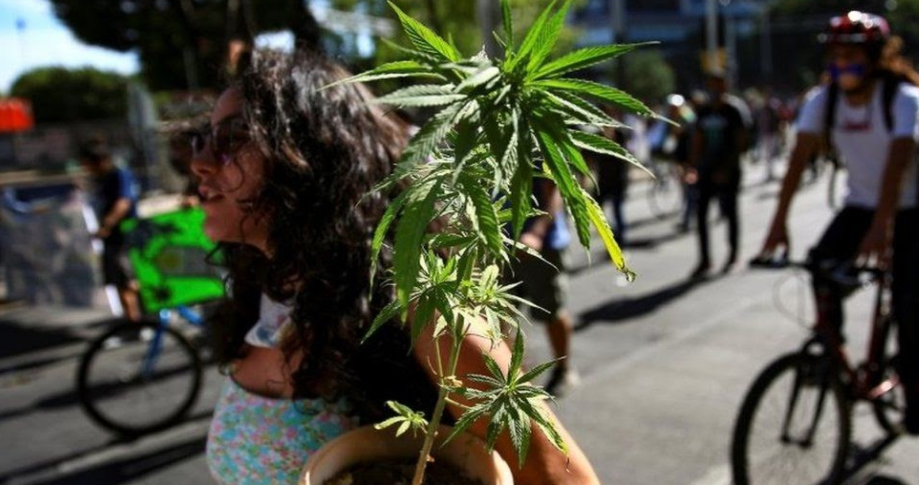Mexico’s projected legalization of cannabis, purportedly supported by both the president and the senate, surfaces in a country where a third of the population opposes weed and is in the midst of a dragged on drug war, presenting a symbolic breakthrough to the world’s cannabis market. The bill would allow users to carry 38 grams on their person and grow six plants at home. It would allow recreational use of the drug in a country that could become the world’s largest legal cannabis market (following Canada), by virtue of its population; however, the facts suggest that an anticipated green boom may be much more subtle and rather more symbolic.

The global backdrop from which this bill was introduced is a country involved in a nasty and violent decades-long drug war and as a result, a silenced and oppressed population regarding the topic of marijuana. However, the proposed legislation may bridge the gap between those weed smokers that have long been silent and those that are wholly against it. While increased accessibility may cause what was once a taboo topic to be one that is more of a welcomed topic in the home, this process will take decades. It is generally reported that it is younger populations that smoke cannabis in this country that has long been engaged in a drug war. These younger populations are not yet at the position of widespread decision making. Mexico is in general very Catholic; this, coupled with the state’s loosely enforced criminalization of marijuana and weak handle on drug violence in the country, has deeply embedded a negative stigma on the plant.
Worldwide hysteria over the prospective bill predicts that it will serve as an economic breakthrough for Mexico: its significance, however, may be much more subtle and gradual than a stark overturn of the country’s weakened economy. The bill implements strict and narrow regulatory measures regarding the production of marijuana: it presents a significant limitation on the amount of cannabis plants allowed to be carried and grown in the home. In all likelihood, it will discourage the small agricultural population that produces the bulk of the crop from entering the legal market.
The landmark bill will once again neglect those agricultural farmers which the country depends on and will provide a channel through which corporations may monopolize off of cannabis’ legalisation. This is due to two reasons: low domestic demand and licensing requirements.
The bill’s narrow regulations do not satisfy the country’s low demand. Cartels have since shifted their commitment from growing marijuana to the investment in fentanyl and methamphetamines. Although it has been suggested that small farmers and indegenous populations would be granted priority in licensing, the state has a weak handle on organized crime in rural agricultural communities; this is but one factor that may leave vulnerable farming groups unprotected in regards to cartels’ territorial reign and discourage them from entering the legal market.
Congress has advertised this bill with the promise that it will empower vulnerable agricultural communities. This promise has not been followed through; the intricacies of the bill allow for corporations to obtain an integral license, which in reality enables them to more easily monopolize the marijuana supply chain. In contrast, the bill specifies a much more comprehensive and narrow framework by which farming populations may be legally allowed to grow the crop. The Mexican Cannabis Institute plans on conducting annual public reviews regarding areas of improvement and to suggest legislative changes to Congress. However, as this weak promise has already been announced, this begs the question: what party will hold the Mexican government accountable to ensure that provisions are made for vulnerable farming communities?
Without a doubt, the prospective legalization of marihuana in Mexico is a symbolic breakthrough. Its legalization may reap research benefits (regarding the benefits of medical marihuana) and the gradual destigmatization of the drug. The bill’s limited provisions clearly favor private corporations over the hardworking and laborious farming population that has long provided the crop in Mexico. What the bill does promise is the ability for corporations to monopolize the country’s domestic market and that the majority of crop production may continue to occur illegally and discretely. A large-scale economic boom will not materialize: however, it will stimulate and serve as an opportunity for growth in the country’s low domestic demand.






